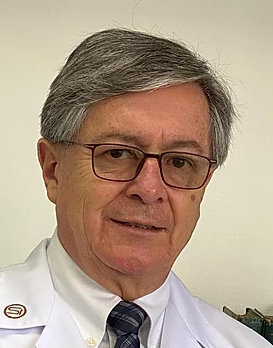What about ‘Immunity Passports’ for Covid-19? At this point, they’re a ‘no go’
By Jaime Moreno
Do you know what is the difference between politics and science?
Our understanding is that science requires evidence, coping with uncertainty, weighting efficacy and safety. Whereas politics aspires for certainty, resulting in a true fight between the deductive and the inductive methods, with humanity in the middle. I, as a physician, must make prudent, humble decisions, waiting for the scientific evidence that is to come in the COVID-19 pandemic.
efficacy and safety. Whereas politics aspires for certainty, resulting in a true fight between the deductive and the inductive methods, with humanity in the middle. I, as a physician, must make prudent, humble decisions, waiting for the scientific evidence that is to come in the COVID-19 pandemic.
Hence: World Health Organization (WHO) and some countries have suggested that the detection of antibodies (Abs) to SARS-CoV-2, could serve as the basis for an “immunity passport” or “risk-free-certificate” to travel or to return to work, assuming that they are protected against re-infection.

Dr. Jaime Moreno A.
Truth is that there is currently no evidence that people who have recovered from Covid-19 and have antibodies are protected from a second infection.
The measurement of specific antibodies (Abs) to COVID-19
“The development of immunity to a pathogen is a multi-step process that takes around two weeks. The body responds to a viral infection immediately with a non-specific innate response in which macrophages, neutrophils, and dendritic cells slow the progress of the virus and may even prevent it from causing symptoms. This non-specific response is followed by an adaptive response where the body makes antibodies (Abs) that specifically bind to the virus. The antibodies are proteins called immunoglobulins. This is humoral immunity. The body also makes T-cells that recognize and eliminate other cells infected with the virus. This is called cellular immunity. This combined adaptive response may clear the virus from the body, and if the response is strong enough, may prevent progression to severe illness or re-infection by the same virus. This process is often measured by the presence of antibodies in blood”.
WHO states that most people recovered from infection have antibodies to the virus. However, some of these people have very low levels of neutralizing antibodies in their blood, suggesting that cellular immunity may also be critical for recovery.
Up to 4/24/2020, there is not enough evidence about the effectiveness of antibody-mediated immunity to guarantee the accuracy of an “immune passport” (WHO, Scientific Brief, “Immunity Passports” in the context of COVID-19).
Covid-19: Where’s the strategy for testing?
One formal opinion in England, expressed by Fiona Godlee, Editor in Chief, British Medical Journal is: “It would be nice to be able to say otherwise, but the UK’s approach to testing in this Covid-19 pandemic continues to be chaotic, centralized, commercialized, and driven by numerical targets rather than clear strategy. Allan Wilson, President of the Institute of Biomedical Sciences, has called this reactive and random approach the “wild west” of testing. Fiona Godlee adds that on top of it, there is an utmost lack of honesty. (BMJ 2020;369:m2518).
 Does a positive antibody test result mean I’m immune?
Does a positive antibody test result mean I’m immune?
This is the question on most people´s minds. But before answering it you must remember there is no accepted international standard for antibody tests for Covid-19, leaving in governments’ hands the evaluation of these tests using their own criteria. There is much piracy which invalidates further these serologic, rapid tests. Many patients get false-positive results, giving them a false sense of security, relaxing their attitude towards handwashing and social distancing.
There are no “immune passports”. These rapid tests should not be used in clinical practice, but they could be useful in epidemiologic seroprevalence studies. “People are interested in these tests because they want certainty. The problem with the individual tests is they cannot give them that.” (Chris Baraniuk, BMJ 2020;369:m2284).
Waiting for certainty on Covid-19 antibody tests – At what cost?
“Perfect is enemy of the good”.
Globally, governments are re-opening their economies. We, as internists, work with uncertainties, so it would be ideal the serologic tests would be perfected in the near future.
The Harvard T.H. Chan School of Public Health´s position is that “Four independent pieces of information need to be weighed against one another in assessing serologic testing as a basis for returning people to work. First is our understanding of the presence of SARS-CoV-2 antibodies in the population (prevalence). Second is our understanding of the performance of serologic testing, both its ability to detect the presence of antibodies (test sensitivity) and its ability to confirm the absence of SAR-CoV-2 antibodies when they are truly absent (test specificity). Third is our beliefs about whether and how antibodies confer immunity; if they do, what do we assume about the relationship between antibody level (titer) and the resultant degree and persistence of any immunity that is conferred? Fourth is our belief about the relative magnitude of the two different kinds of harm that we could cause: the net harm of mistakenly releasing a susceptible, and potentially infectious, person into the workforce with minimal mitigation (false positive cost) and the net cost of failing to certify a truly immune person to rejoin the workforce (false negative cost)”. (Weinstein MC, Perspective. NEJM, June 5, 2020).
Persons who suspect being infected with SARS-CoV-2, their relatives or friends must consult a physician to take adequate decisions on this difficult pandemic we are living through.
Stay home!
____________________________
Credit: InfoSalud
Dr. Jaime Moreno A. writes the InfoHealth blog.
Hematología-Laboratorio Consultorios Santa Inés, Torre 1, Oficinas 003 y 102 Daniel Córdova y Federico Proaño Teléfono: 072843136
Celular 1: 0997281884
Celular 2: 0997257585
Email: hematologia.laboratorio@yahoo.com
jaime.moreno@yahoo.com
Blog: www.hematologialaboratorio.com/blog





















